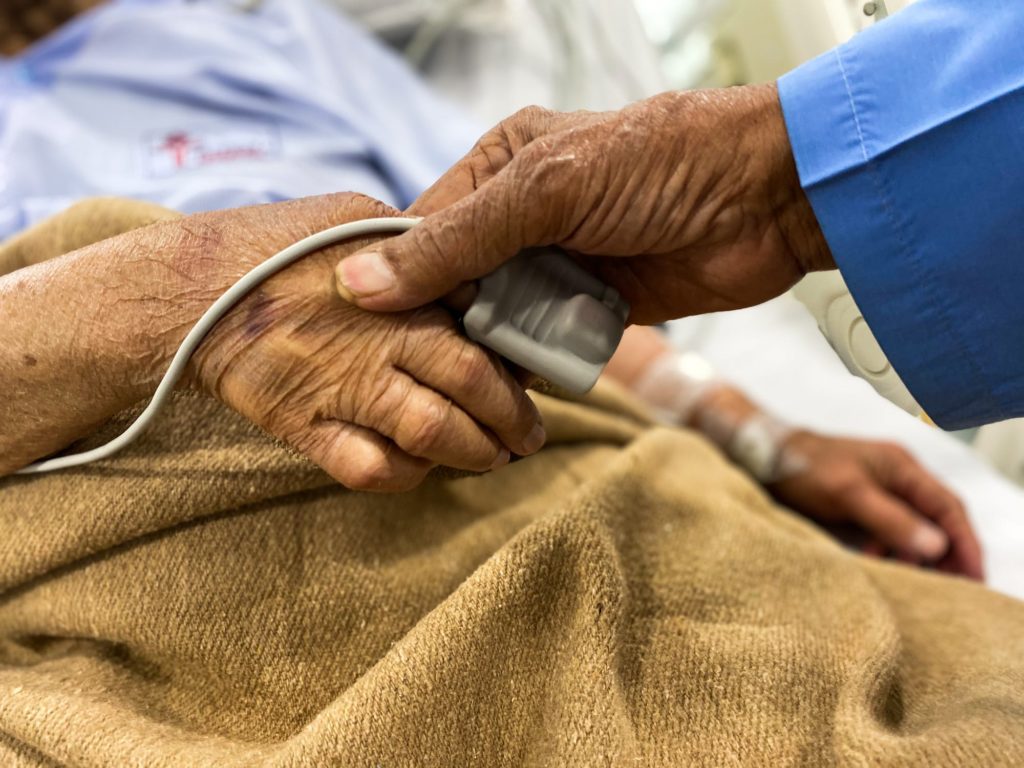Kidney disease is one medical condition that seniors often struggle with. Because it has a significant impact on their overall well-being, hospice care services go to great lengths to manage it. They also advise relatives to be vigilant when dealing with it at home. But how do you do it exactly? Here is a handy guide.

Understanding Kidney Disease
Also known as renal failure, kidney disease happens when one or both of your kidneys start not working well. The condition can proceed either gradually or suddenly, with the latter often referred to as acute renal failure. Whichever the case is, such a situation will require immediate medical action to remedy it and bring your kidneys back to health or mitigate the symptoms.
Causes
Renal failure can come about due to various existing medical conditions. However, two conditions are considered the main culprits.
- Diabetes: The increased blood sugar levels brought about by diabetes will cause your kidneys to work too hard and eventually wear down.
- High blood pressure: The high blood pressure going through the kidneys can eventually damage them.
Because these two conditions are very prevalent in older people, they also bear a higher risk of having kidney failure. Because of that, steps to lessen it are part of management plans for these conditions.
Other potential causes of chronic kidney failure include:
- Polycystic kidney disease
- Glomerular diseases
- Autoimmune diseases like lupus
These might not be as common as the above two in older people. But it would still be best for you to have your loved one undergo screening for them as well.
Managing Diabetes in Older People
Acute Renal Failure
In the case of acute renal failure, there can be various reasons why your kidneys might suddenly stop working. These come in several general types.
- Restricted blood flow to the kidneys: Infections or a potential liver disease often cause this. Some medications may also cause such restrictions.
- Urine blockage: Your urine cannot leave your kidneys. This condition is possibly due to blood clots or kidney stones.
- Direct damage to the kidneys: Different diseases can directly damage your kidneys. Medication like ibuprofen or naproxen can also do this if not used properly.
Depending on the exact cause, the damage done to your kidneys might be reversible. That means that the condition is temporary and is treatable.

The Symptoms Of Renal Failure
Whatever the cause of your elderly loved one’s kidney diseases, early detection will play a large part in its management and treatment. Some of the symptoms you need to watch out for are:
- Fatigue
- Nausea and vomiting
- Changes in how much you urinate, often becoming less than usual
- Swelling in parts of the body, especially the hands and ankles
- Muscle spasms or cramps
- Confusion or having a hard time concentrating
- Poor appetite or metallic taste of food
- Frequent need to pee
- Loss of appetite
- Persistent itching
Note that different symptoms can manifest between individuals. Thus, you might want to have your elderly loved ones scheduled for a general checkup. This will help determine if the condition is indeed kidney failure and not other diseases.

Treatment And Management Of Renal Failure
Doctors do several tests to determine the extent of the disease your elderly relative might be suffering from. These include:
- Blood tests: This checks the levels of certain chemicals in the bloodstream like creatinine and urea.
- Urine tests: Doctors will observe how much pee your elderly loved ones pass within 24 hours and look for traces of blood and protein in the urine.
- Imaging test: You undergo CT and ultrasound to see if your kidneys are swollen. Meanwhile, an angiogram will reveal whether there is restricted blood flow.
- Kidney biopsy. The procedure involves sticking a needle into your skin to extract a piece of kidney tissue for direct examination.
The first series of tests are often already part of general checkups. On the other hand, kidney biopsy might carry some risks for older patients. Thus, you need to carefully weigh its benefits versus those risks before proceeding with the test.
What Treatment Are Available
Depending on the severity of the damage in your relative’s kidneys, doctors might utilize several methods. In the case of acute kidney failure where the organs still have the chance for recovery, they often use medications that control the level of phosphorus and potassium in the blood. That helps relieve the pressure on the kidneys to filter these materials, giving them room to heal naturally.
Since kidney failure is often tied to other illnesses, the medication used for treating these also helps deal with the condition. However, your senior relatives might need to be taken off certain medicines temporarily while treating their kidneys. That is because the side effects of these can affect the effectiveness of the treatment.
Alongside medication, your senior loved one will also need to change their diet. That includes lessening foods that have lots of salt and potassium. Since the kidneys filter those substances, lessened intake will mean less work for the organs.
End-Stage Renal Failure
However, if the damage to your loved one’s kidney has become so severe, it can become irreversible. In end-stage renal diseases, the treatment now focuses on delaying the progression of the diseases. Here, the goal is to help your loved one live comfortably with the condition. There are two methods employed here.
Dialysis
This method involves using artificial means of replicating the kidney’s functions. There are two types that doctors might employ.
- Hemodialysis: A machine filters the patient’s blood externally to remove waste materials.
- Peritoneal dialysis: This method involves inserting a catheter into your abdomen and injecting a solution through it. The waste materials are filtered through the abdominal lining.
Note that your elderly loved one will need to go through dialysis regularly. If they can’t travel to a hospital for their sessions, they can instead have these at home. Many hospice care services provide this option upon request. They have specialists who can assist in doing the treatment. Depending on the arrangement, you can also pay for the use of the machines as part of the service.
Kidney Transplant
This operation involves replacing the kidneys with a healthy one from a donor. It is worth noting that people can live with just one healthy kidney. As such, the donor organ can often come from a relative who has volunteered for the operation.
While the procedure has become a lot more common for older adults, there are still several things you need to consider before opting for it. Their general health status would be the largest determining factor here. Doctors will need to assess whether the patient can survive the operation. Afterward, they will need to see how well they can live post-operation. Because of that, you need to carefully weigh on the benefits before pushing through.

Helping Your Kidneys Keep Going Through Good Hospice Care Services
Whether your elderly loved one is undergoing dialysis, has gone through a transplant, or simply decided to live through renal failure, they need the right care. Amavi’s hospice care service is well-equipped to handle such needs. Our team will help you with disease management and treatment.
